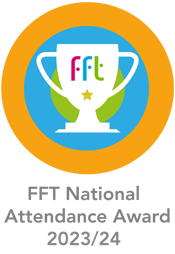Our curriculum across both KS3 and KS4 is driven by our vision:
‘To create digital natives, who understand and are excited by the world of technology. Therefore being able to take full advantage of the tools it provides.”
Computers have become an essential part of everyday life. Through the study of digital information technology, learners will develop a wide range of fundamental skills, knowledge and understanding that they will need for the rest of their lives, and that will enable them to participate effectively in both the real and the digital world. The Curriculum aims to develop independent resilient learners who embrace challenge, see trial and error as a normal part of the learning process and grow through collaborative work. Learners will understand the basic principles of using computers and be able to use them for a wide range of applications.
KS3 Implementation
Collaborative, detailed and thorough curriculum planning lies at the heart of what we do in the department. We have a two and three-year plan detailing our schemes of learning. We use all available resources and teaching strategies to ensure that learners have a comprehensive knowledge of the specifications and are capable of going beyond what is taught in lessons. Techniques to help develop long-term memory and help learners master subject content are embedded in the curriculum. These are focused on embedding challenge, metacognition, memory techniques, numeracy and literacy into our departmental curriculum. To complement the schemes of learning learners also engage in computing through enrichment experiences. These build on what is covered in the curriculum and provide new and exciting ways for learners to try out their new skills in a different kind of environment.
KS3 Impact
We know our curriculum is working in the computing department as results are consistently above the national average and among the best in the school at GCSE and A Level. The quality of teaching and learning in computing has been praised during learning walks by both external and internal observers. The engagement of learners in the department can be observed in lessons and recorded in student voice. The number of students choosing to study computing at key stage 4 is very high. Furthermore, the number of students choosing both key stage 4 and 5 have significantly increased in recent years. A lot of our students go on to study the subject further at university. More importantly, students frequently express their enjoyment of computing, the quality of teaching they have received and their appreciation of the knowledge and study skills they have gained from the department.
Key Stage 3 Intent
Over the course of Key Stage 3, our students will study and learn the following:-
| Topic/Study Focus | Knowledge/Skill focus |
| User interfaces | Understanding what a user interface is and the different types. Knowledge of the different hardware used in interfaces. |
| Factors & influences | Understanding of the different factors that affect choosing a user interface. Being able to investigate the needs of the audience. |
| Design principles & psychology | Being able use different design principles to create an effective interface. Understanding of the psychology involved when thinking about the look and feel of the system. |
| Project Planning | Being able to use tools to plan a project. Knowledge of the different software methodologies used when making a program. Understanding the different components that need to be incorporated into a proposal. |
| Designing | Being able to make a design of a user interface. Understanding of the requirements that must be built into the design. Knowing how to develop an initial design using the design principles. |
| Reviews | Being able to review the success of the interface. Understanding how to review the planning carried out. Being able to suggest improvements for the user interface. |




